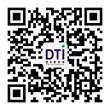Large-capacity water cup German LFGB food contact material testing process
Date:2024-05-09 10:05:19 Classification
:【question】 Visits:
Large-capacity water bottles do need to be tested for German LFGB food contact materials. LFGB is a safety regulation formulated by Germany for food contact materials. Its main purpose is to ensure that materials in contact with food will not cause contamination to food, thereby protecting the health of consumers. Since large-capacity water cups are in direct contact with food (such as drinking water), their safety needs to be verified through LFGB testing.
Large-capacity water cup LFGB detection:
1. Material testing: Check whether the material of the water cup is safe and does not contain chemicals harmful to the human body.
2. Migration test: Evaluate whether harmful substances in the water cup may migrate to food. For example, for plastic water cups, they may be tested for migratory substances such as plasticizers.
3. Heavy metal testing: Ensure that the heavy metal content in the water cup does not exceed the specified standards.
4. Sensory testing: including evaluation of smell and taste to ensure that the water cup will not have adverse effects on food during use.
Large-capacity water cup German LFGB food contact material testing process:
1. Early preparation:
Determine the type of product that needs to apply for LFGB certification, that is, a large-capacity water cup, and understand its possible contact with food.
Collect relevant information, including product instructions, performance test reports, material ingredient lists, etc.
Choose the appropriate testing agency and contact it to obtain a detailed testing plan and quotation.
2. Submit application:
Fill out the application form, including company information, product information, materials used and other information.
Submit product samples to the testing agency and provide relevant testing applications and information.
3. Payment of testing fees:
Pay the corresponding testing fees according to the charging standards of the testing agency.
4. Sample testing:
The testing agency tests the samples and evaluates the physical properties, chemical properties and other aspects of the products.
Conduct sensory evaluation of odor and taste transfer to ensure that the product will not have adverse effects on food during use.
The water bottle material is tested for transferable components and leachable heavy metals.
Detect chemical hazards of special materials according to German chemical laws, such as azo dyes, etc.
5. Report preparation and review:
The testing agency prepares detailed testing reports based on the test results and conducts internal audits.
6. Certificate issuance:
If the product meets the LFGB standard, the testing agency will issue an LFGB certification certificate to prove that the product meets Germany's food-grade contact material standards.
The testing agency will mail the certificate to the applicant and attach the relevant invoice.
7. Follow-up work:
After obtaining LFGB certification, annual audits and testing are required to maintain the validity of the certification.




 Shen Gongwang Security: 44030602006947
Shen Gongwang Security: 44030602006947